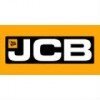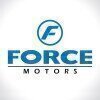Vehicle Integration Manager
10+ Vehicle Integration Manager Interview Questions and Answers

Asked in JCB

Q. What are the differences between Indian and international standards when selecting materials?
India and international standards differ in material selection based on regulations, testing methods, and environmental considerations.
Regulatory Framework: India follows IS (Indian Standards) while international standards may follow ISO or ASTM.
Testing Methods: International standards often have more rigorous testing protocols, e.g., ASTM D638 for plastics.
Material Properties: International standards may specify different mechanical properties, e.g., tensile strength require...read more

Asked in JCB

Q. How do you select materials for a part after the design is complete?
Selecting materials involves evaluating properties, costs, and application requirements for optimal performance and safety.
Identify mechanical properties needed (e.g., strength, ductility) - for example, aluminum for lightweight structures.
Consider thermal properties - use thermoplastics for parts exposed to high temperatures.
Evaluate corrosion resistance - stainless steel for components in harsh environments.
Assess cost-effectiveness - choose composites for high-performance ...read more

Asked in Force Motors

Q. What is CAN and how it works? Details about ECU used in automobile
CAN stands for Controller Area Network. It is a communication protocol used in vehicles to allow microcontrollers and devices to communicate with each other.
CAN is used in modern vehicles to allow different ECUs to communicate with each other
It is a two-wire bus system that allows for high-speed communication between devices
CAN allows for real-time data transmission and is used for critical systems such as engine management and safety systems
ECUs in vehicles include the engin...read more

Asked in JCB

Q. How do you decide on the right material for a product?
Choosing the right material involves assessing performance, cost, and application requirements for optimal product integration.
Evaluate mechanical properties: For example, use aluminum for lightweight structures in vehicles.
Consider environmental factors: Use corrosion-resistant materials like stainless steel in harsh conditions.
Assess cost-effectiveness: Opt for composites in high-performance applications where weight savings justify the cost.
Analyze manufacturing processes:...read more

Asked in JCB

Q. What is the difference between straightness and parallelism in GD&T?
Straightness ensures a line or surface is devoid of curves, while parallelism checks if two lines or surfaces remain equidistant.
Straightness is a condition where a feature must be a perfect line or surface without any deviation.
Example: A straight edge must not have any bends or curves along its length.
Parallelism ensures that two features are always the same distance apart, regardless of their length.
Example: The top and bottom edges of a rectangular part should remain para...read more
Asked in Infinity Research Lab

Q. What is the K-factor in sheet metal?
The k factor in sheet metal defines the ratio of the neutral axis to the material thickness during bending.
The k factor is crucial for accurate bend calculations in sheet metal design.
It typically ranges from 0.3 to 0.5, depending on the material and bend radius.
For example, a k factor of 0.33 is often used for mild steel.
Understanding the k factor helps in predicting the final dimensions after bending.
Vehicle Integration Manager Jobs


Asked in JCB

Q. What is the yield point of a material?
The yield point is the stress at which a material begins to deform plastically, marking the transition from elastic to plastic behavior.
The yield point indicates the maximum stress a material can withstand without permanent deformation.
For example, steel has a yield point around 250 MPa, meaning it can handle this stress before deforming.
Materials like rubber have a very low yield point, making them more flexible and prone to deformation.
Understanding the yield point is cruci...read more

Asked in JCB

Q. What is the difference between Runout and Total Runout in GD&T?
Runout measures deviation from a true circular path; total runout includes both circular and axial variations.
Runout refers to the deviation of a surface from a true circular path when rotated around an axis.
Total runout combines circular runout and axial runout, measuring the total variation of a surface along its length.
For example, if a shaft has a circular runout of 0.01 mm, it means the surface deviates by that amount when rotated.
In contrast, total runout would consider...read more
Share interview questions and help millions of jobseekers 🌟


Asked in Force Motors

Q. Automotive electrical components and it's standards
Automotive electrical components and standards are crucial for vehicle safety and performance.
Automotive electrical components include batteries, alternators, starters, and wiring harnesses.
Standards such as ISO 26262 and SAE J1939 ensure safety and reliability of these components.
Electrical components must also meet environmental regulations such as RoHS and REACH.
Proper installation and maintenance of these components is essential for optimal vehicle performance.

Asked in JCB

Q. What is ultimate strength?
Ultimate strength is the maximum stress a material can withstand before failure.
It is a critical property in material science and engineering.
Ultimate tensile strength (UTS) is a common measure for metals.
For example, steel has a high ultimate strength, making it suitable for construction.
In contrast, materials like rubber have lower ultimate strength, limiting their applications.

Asked in Force Motors

Q. What is vehicle integration?
Vehicle integration is the process of combining various components and systems to create a functional vehicle.
It involves integrating mechanical, electrical, and software systems.
Examples include integrating the engine, transmission, and drivetrain to create a working powertrain.
It also involves integrating safety systems such as airbags and anti-lock brakes.
Vehicle integration requires a deep understanding of the various systems and how they work together.
It is a critical st...read more

Asked in JCB

Q. What are the design considerations for sheet metal?
Key considerations in sheet metal design include material selection, thickness, forming processes, and tolerances for optimal performance.
Material Selection: Choose materials like aluminum or steel based on strength, weight, and corrosion resistance.
Thickness: Determine appropriate thickness to balance strength and weight; for example, 1.5mm for automotive parts.
Forming Processes: Consider methods like stamping or bending; for instance, deep drawing for complex shapes.
Toleran...read more

Asked in JCB

Q. Define GD&T with an example.
GD&T (Geometric Dimensioning and Tolerancing) is a system for defining and communicating engineering tolerances.
GD&T uses symbols to convey complex geometric requirements clearly.
For example, a flatness tolerance ensures a surface is within a specified flatness range.
Another example is the position tolerance, which defines the allowable deviation of a feature's location.
GD&T improves manufacturing efficiency by reducing ambiguity in design specifications.
Interview Questions of Similar Designations
Interview Experiences of Popular Companies




Calculate your in-hand salary
Confused about how your in-hand salary is calculated? Enter your annual salary (CTC) and get your in-hand salary


Reviews
Interviews
Salaries
Users










